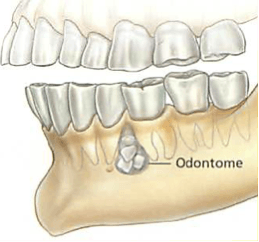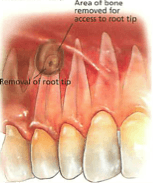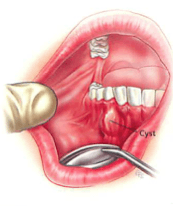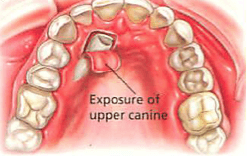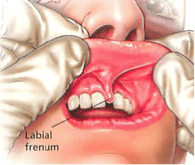Dentoalveolar Surgery - North Shore Oral and Maxillofacial Surgery
Home » Procedures »
Dento alveolar surgery includes numerous operations on teeth, gums and the jawbone holding the teeth.
The most frequent oral and maxillofacial operation is the removal of wisdom teeth. This is explained in a separate chapter, as well as dental implants.
Other than wisdom teeth other teeth may have to be removed due to decay or periodontal disease. There may be other impacted teeth, which have to be removed as well as supernumerary teeth that may affect the remaining dentition.
Sometimes teeth can be saved with root canal treatment. If there is persisting granulation or a cyst at the tip of the root, this may require surgery with removal of the tip of the root and the affected surrounding tissues. This is called apicectomy.
Besides cysts arising from roots there can be other cysts in the jaw that need to be removed as they are expanding replacing bone and possibly moving teeth. Extended cystic lesions may require a biopsy first to exactly classify the lesion and the appropriate treatment.
Surgery may be required as aids to orthodontic treatment. There may be the need for removal of teeth with crowded dentition or exposure of impacted teeth, especially upper canines (eye teeth), that should be aligned into the dentition. Supernumerary teeth or odontomas (tooth like benign malformations) may have to be removed, as they interfer with the regular position of the dentition.
Surgery may be necessary to improve the fitting of partial or full dentures. There may be excessive bone growth at the inside or outside of the jaws which is called torus and has an impact on the seat of the dentures. This excessive bone has to be removed in order to improve the jaw line profile for retention of the dentures.
There may be excessive soft movable tissues on the jaws that have an impact on the seat of the dentures. Those fibromas have to be removed to increase the area of fixed tissues under the dentures.
There may as well be deeply inserting ligaments, that may dislodge dentures. These need a plastic correction, to reduce the soft tissue movements. Some times there may be a reduced depth of the outer sulcus around the jaw, which tends to dislodge the denture. In that case a deepening of the sulcus as vestibuloplasty will increase the area of fixed soft tissues and improve the retention of the denture.

